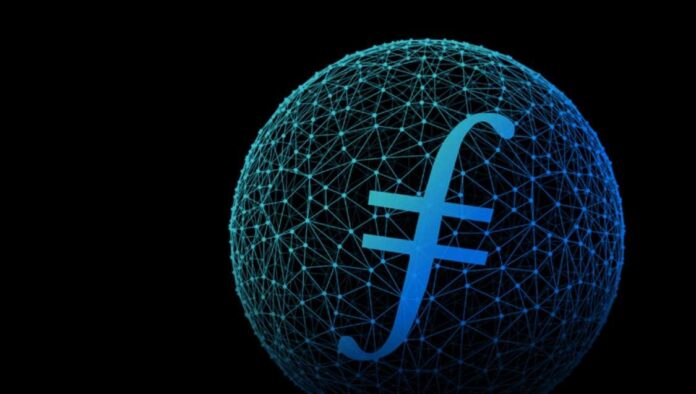- Data storage options can vary from decentralized Filecoin offerings to Google Cloud centralized alternatives.
- While both have their positive and negative sides, the final choice is user-dependent.
As businesses and individuals generate and handle vast amounts of data, choosing a storage solution becomes a critical decision. Two prominent contenders in the realm of data storage are Filecoin and Google Cloud.
This article delves into the comparison between Filecoin and Google Cloud, exploring how MCS, in conjunction with Filecoin, emerges as a powerful contender for ensuring superior data security in the Web3 era.
Multi-Chain Storage and Filecoin: A Synergistic Alliance
Multi-Chain Storage, developed by the Swan Network, represents a paradigm shift in storage solutions for the Web3 era. Unlike traditional cloud storage, MCS leverages smart contracts for enhanced security. A pivotal aspect of MCS is its integration with the InterPlanetary File System (IPFS) and the Filecoin network, providing a fully decentralized storage solution.
Elevate your dApps with @swan_chain‘s multi-chain storage, powered by @IPFS & Filecoin. 📲
Multi-chain storage is a web3-based storage solution that revolutionizes data storage across blockchains, merging S3 gateway’s ease with smart contract security and efficiency. pic.twitter.com/ygpahei62A
— Filecoin (@Filecoin) December 18, 2023
Filecoin operates as an open-source cloud storage marketplace, protocol, and incentive layer. In essence, it functions as a peer-to-peer marketplace for storage space, allowing users to rent out unused hard drive space in exchange for Filecoin’s native token, FIL. The Filecoin network, developed over two years, offers various retrieval methods such as HTTP Retrieval, Bitswap Retrieval, and Graphsync Retrieval, enhancing data retrieval efficiency.
MCS leverages Filecoin as an archival layer, ensuring critical data is securely backed up across multiple Filecoin nodes. This integration facilitates seamless transactions for data storage, breaking down barriers between blockchains by automatically swapping diverse tokens to FIL.
One of the key advantages of MCS over traditional Google Clouds is that it eliminates intermediaries and third-party providers, ensuring users have full control and ownership over their data while preventing censorship and tampering.
Additionally, MCS supports multiple blockchains, including Ethereum, Polygon, and more. Users can access their files from any chain they prefer, avoiding lock-in to a single platform or network. Moreover, MCS can handle large volumes of data and traffic without compromising speed or quality. Adapting to the dynamic conditions of each chain, such as congestion, fees, and latency, ensures scalability in diverse environments.
Comparing Filecoin to Google Cloud
As Multi-Chain Storage seamlessly integrates with technologies like IPFS and Filecoin, it positions itself as a formidable alternative to traditional cloud storage, addressing the specific needs of businesses, developers, and individuals immersed in the Web3 space.
Meanwhile, Filecoin’s recent ‘Watermelon’ nv21 upgrade highlights its commitment to continuous improvement, enhancing efficiency, robustness, and functionality. With these advancements, Filecoin is solidifying its position as a reliable storage solution in the crypto space.
In the ongoing debate of Filecoin vs. Google Cloud, the combination of Multi-Chain Storage and Filecoin emerges as a compelling choice for those committed to the principles of decentralization in the storage of valuable data.
However, the choice between Filecoin and Google Cloud for data storage ultimately depends on individual needs and preferences. Filecoin’s decentralized approach may appeal to those seeking enhanced data resilience, especially in the context of blockchain enthusiasts.
On the other hand, Google Cloud’s centralized powerhouse offers advanced security measures and a comprehensive suite of services, making it suitable for businesses with diverse computing needs.
Crypto News Flash does not endorse and is not responsible for or liable for any content, accuracy, quality, advertising, products, or other materials on this page. Readers should do their own research before taking any actions related to cryptocurrencies. Crypto News Flash is not responsible, directly or indirectly, for any damage or loss caused or alleged to be caused by or in connection with the use of or reliance on any content, goods, or services mentioned.
Credit: Source link






















 Bitcoin
Bitcoin  Ethereum
Ethereum  XRP
XRP  Tether
Tether  Solana
Solana  USDC
USDC  Dogecoin
Dogecoin  Cardano
Cardano  Lido Staked Ether
Lido Staked Ether  TRON
TRON  Wrapped Bitcoin
Wrapped Bitcoin  Chainlink
Chainlink  Wrapped stETH
Wrapped stETH  Avalanche
Avalanche  Sui
Sui  Stellar
Stellar  Litecoin
Litecoin  Toncoin
Toncoin  Hedera
Hedera  LEO Token
LEO Token  Shiba Inu
Shiba Inu  USDS
USDS  Hyperliquid
Hyperliquid  Polkadot
Polkadot  WETH
WETH  MANTRA
MANTRA  Bitcoin Cash
Bitcoin Cash  Bitget Token
Bitget Token  Ethena USDe
Ethena USDe  Wrapped eETH
Wrapped eETH  Uniswap
Uniswap  Monero
Monero  NEAR Protocol
NEAR Protocol  WhiteBIT Coin
WhiteBIT Coin  Pepe
Pepe  Aave
Aave  Ondo
Ondo  Bittensor
Bittensor  Aptos
Aptos  Dai
Dai  Internet Computer
Internet Computer  Official Trump
Official Trump  Mantle
Mantle  Ethereum Classic
Ethereum Classic  Tokenize Xchange
Tokenize Xchange  OKB
OKB  Gate
Gate  sUSDS
sUSDS  Sonic (prev. FTM)
Sonic (prev. FTM) 
